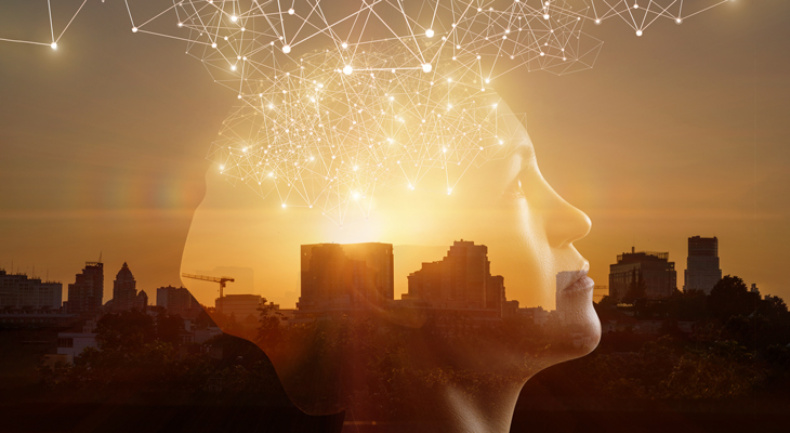Can AI make us happier at work?

Let’s admit it: the ‘future’ is here. Alright, we haven’t got flying cars just yet, but generative AI such as ChatGPT and Bard is now embedded in most workplaces.
And it’s starting to affect the way we do things.
But while the debate goes on about whether AI will eventually take over the world (don’t worry, it won’t), I’ve been thinking about how it’s affecting employers.
It’s no secret that AI is disruptive. According to Goldman Sachs, generative AI could affect up to 300 million full-time jobs across the globe. That’s pretty serious.
But here’s the thing: it doesn’t mean it will replace them.
In fact, I’ve been thinking about a few reasons why the adoption of AI could be a good thing for candidates – and for their employers.
It makes you more productive
Now there’s something we all want to hear.
Yes, it’s official: in the Goldman Sachs study I mentioned above, analysts estimated that nearly two-thirds of workers could become more productive using AI.
That means not only doing more during the 9-5, but doing it better.
Hate summarising reports? Ask AI. Need to collate data? Leave it to the machine. By taking all those mundane tasks that workers hate to do (and aren’t too good at) and delegating them to AI, you’ll leave employees free to complete the more creative tasks on their job description.
That means higher productivity and a more efficient – and valuable – workforce.
Which brings us on to…
It can increase pay
It’s not hard to see why boosting productivity is great for companies, but how does it help individuals?
Well, the first thing it does is create opportunities for increased pay. Yep, that’s right, you heard me: AI is an opportunity for employees to become more valuable to the companies they work for.
Here’s why.
Generative AI is only as good as the prompts it is given. So in some ways, its success depends on the expertise of the human operating it. That means that the jobs that rely on human judgement and emotional intelligence – with a good understanding of how AI can complement that – are only going to get more valuable.
In other words, AI isn’t going to take over your job, but someone who understands AI might.
And those people will have greater earning capacity, because they’ll have all the expertise of a human with the added benefit of knowing how AI can make them even better at their job.
If they play their cards right, ChatGPT just might get them a pay rise.
It can improve career development
But we all know that hiring and retaining great staff isn’t just about money. So it’s a good job that another way AI is disrupting the way we experience work is by creating more opportunities for career development.
This is happening in two ways. First, what’s AI really good at? Yep, collating and sharing information. Which is what upskills and trains a workforce. So, employers who use generative AI wisely could be heading for a future where company knowledge is more widespread, employees are more skilled and best practice is better communicated.
And… here’s the proof. In a study conducted at the Stanford Institute for Human-Centered AI in the US, some workers were given use of a generative AI system while others were not. In the study, it was the workers who were newest to the company who experienced the biggest impact – employees who had been there for just two months with AI performed just as well as those who had been there for longer without it.
But upskilling isn’t the only way AI is playing an important role in career development. It's pretty likely that, far from replacing jobs, AI will create new ones. In some cases this means employees will be able to jump to a new role that didn’t previously exist, meaning more opportunities for promotion within the company they already work for.
So getting ahead of the wave and understanding how AI works is vital – not just for candidates but for employers, too.
It can increase engagement and retention
So here’s a question: What does higher pay, greater productivity and more opportunities for career development all add up to?
You’ve got it. The more efficient people are at their jobs, the more they earn and the more they feel they’re progressing in their role, the more engaged and happy they are with their work.
And happy employees means they're less likely to leave, which is great news for employers who are struggling to retain good staff.
In fact, in the Stanford study, once an employer had been given generative AI to assist in their role, the likelihood that they would leave in the current month plunged by 8.6%
And this was even more significant amongst new employees. Because they got better at their job quicker, they felt they were performing well. This gave them greater job satisfaction and improved retention in the first six months – something any employer would love to do.
This is big stuff. In fact, I think this makes AI the biggest thing to happen in recruitment and retention for decades.
The future just got interesting.




